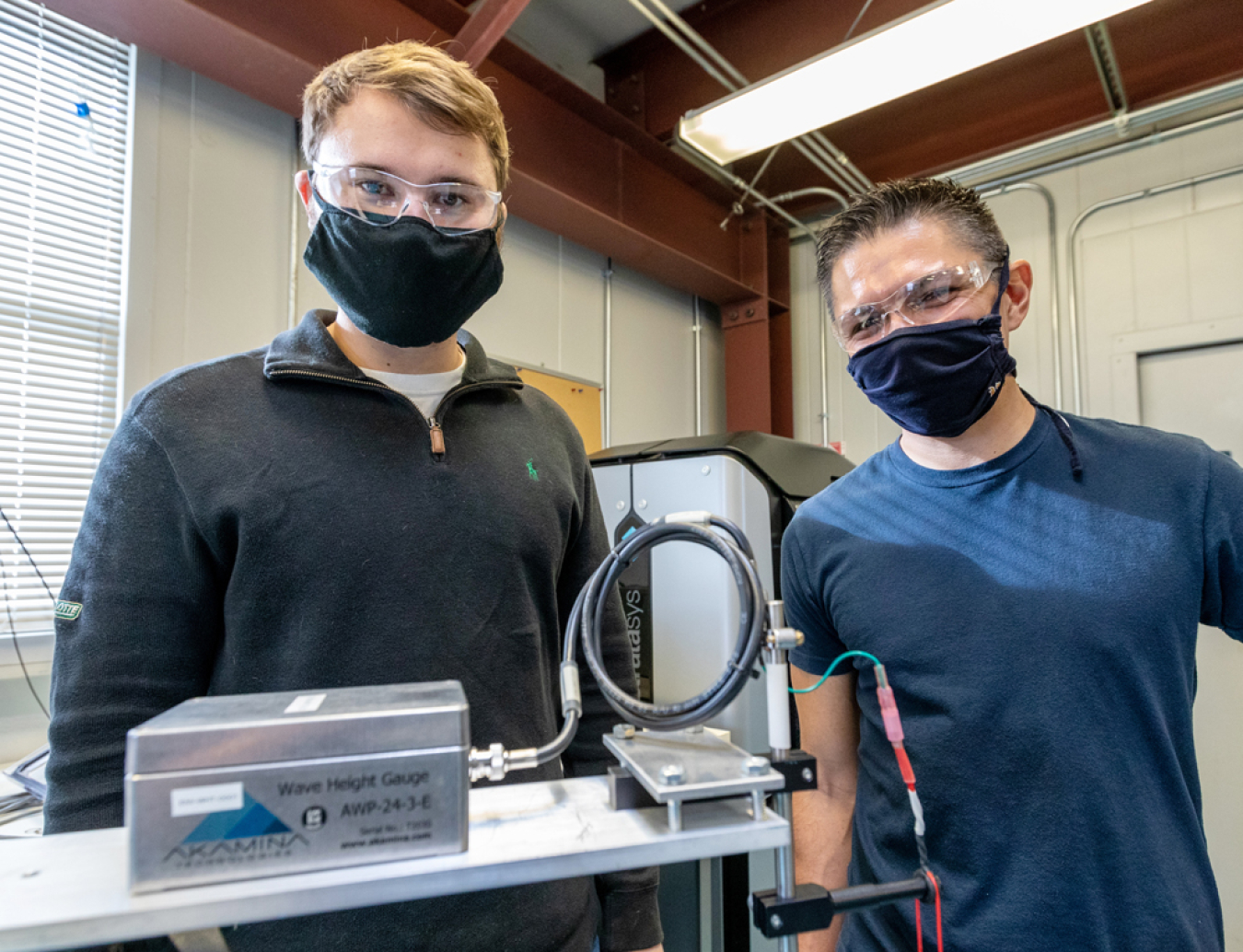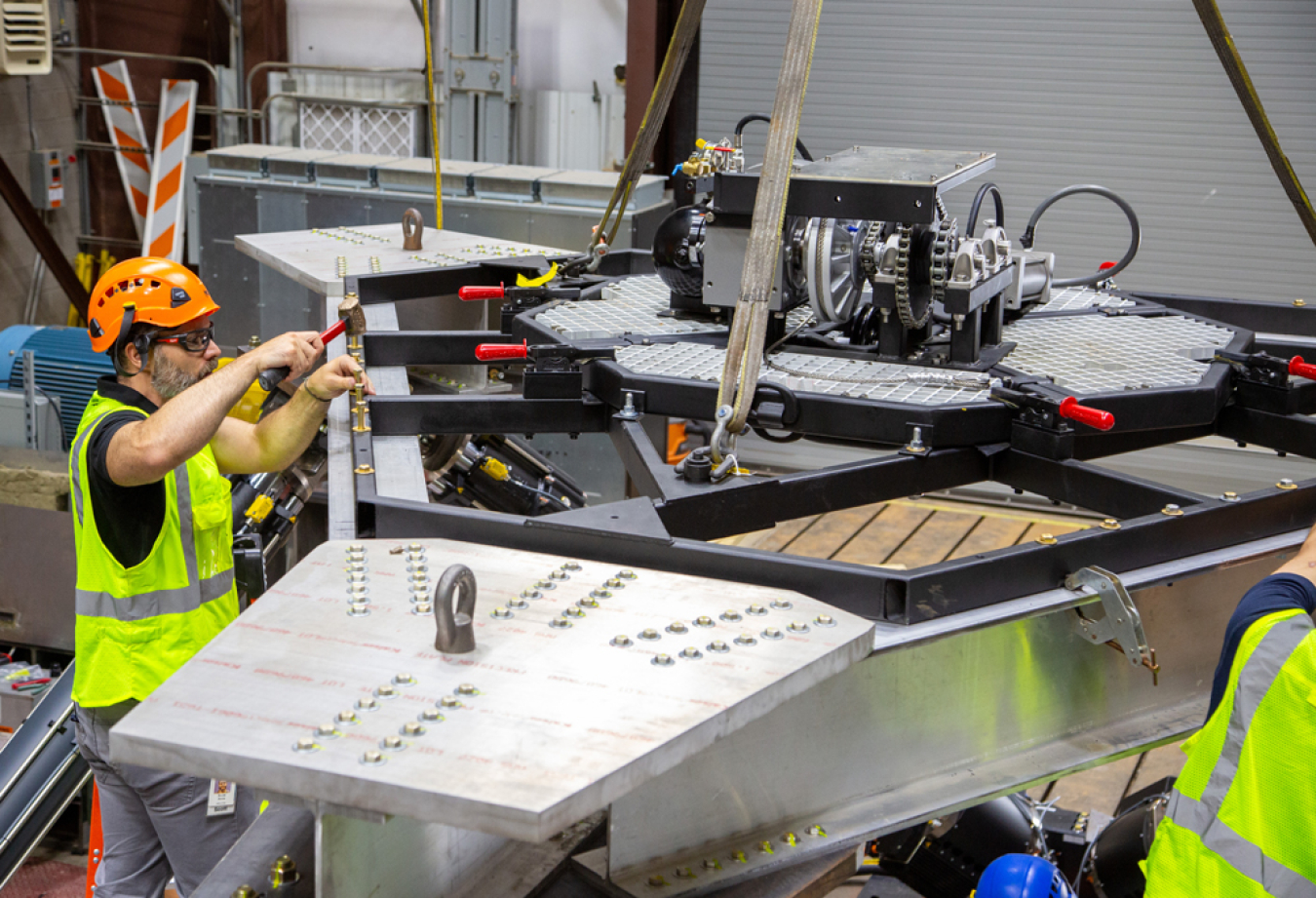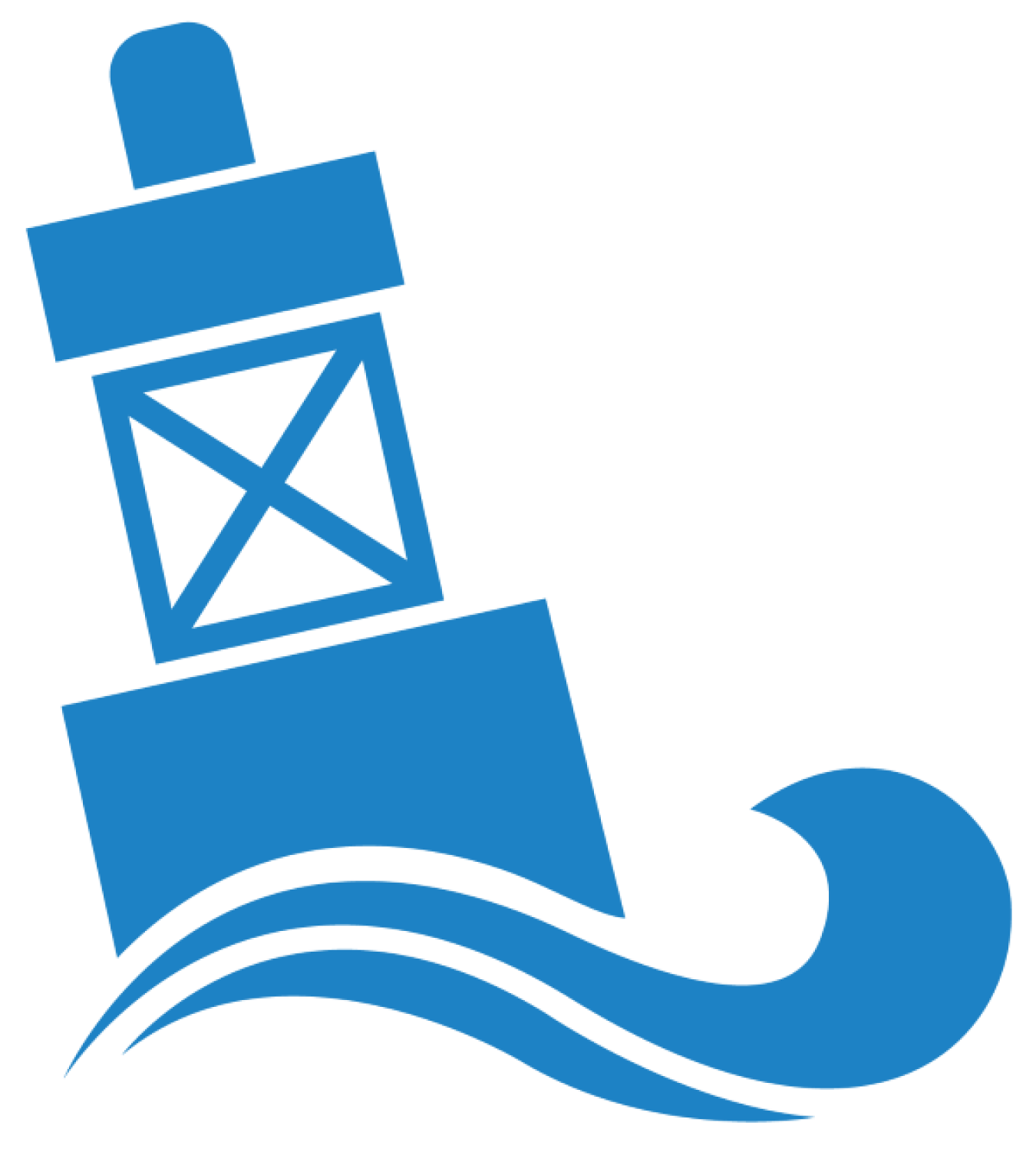Researchers supported multiple marine energy projects with the Modular Ocean Data Acquisition system, which allows marine energy technology developers to collect data on how their prototypes perform in the lab, wave tank tests, or open-ocean trials.
Water Power Technologies Office
March 14, 2024Marine Energy Program
Data Access, Analytics, and Workforce Development
Project Name: Custom Modular Ocean Data Acquisition Systems for Validation of Marine Energy Devices
Project Team: National Renewable Energy Laboratory
Lead Recipient Location: Golden, Colorado

In 2023, National Renewable Energy Laboratory (NREL) researchers supported multiple marine energy projects with their Modular Ocean Data Acquisition (MODAQ) system. MODAQ allows marine energy technology developers to collect data on how their prototypes perform in the lab, wave tank tests, or open-ocean trials. Using the tool, users can assess how much power their devices are expected to produce at sea, analyze the durability of a specific device component, or even control their device from a desk halfway around the world. These tools are critical for developers to understand how to improve their designs and achieve commercial success.
Since MODAQ is customizable, NREL engineers have been able to design specific versions that cater to the needs of different projects. For example, in the last year, a custom MODAQ was used in C-Power's SeaRAY wave energy converter (WEC), providing full automation and supervisory control of the device from anywhere in the world. The interface allows researchers to monitor key parameters, including voltages, currents, motion, temperatures, shaft speeds and GPS positioning, which are especially important when troubleshooting the device. The design was tested at NREL's Flatirons Campus in 2022, and NREL remotely supported the testing and refinement of the SeaRAY as it was being integrated with C-Power's seafloor battery system in 2023.

Water researchers Casey Nichols (left) and Andrew Simms helped build this field data acquisition system (known as MODAQ), which uses clean energy from ocean waves to collect and store data in the cloud.
The MODAQ team also developed ways to use the system to measure loads and strains on the tidal turbine attached to the University of New Hampshire’s "Living Bridge" project at the Portsmouth Memorial Bridge. The team began work to expand MODAQ's capabilities there to include more types of measurements, such as the voltages and currents in the power electronics and the velocity of the water flow crossing the turbine, which will allow the team to capture more accurate power measurements. At the University of Hawaii, MODAQ solutions were used to acquire physical measurements of the Hawaii Wave Surge Energy Converter, which will help validate researchers' performance predictions during laboratory, wave tank, and field testing.
The team also began work on the design of a MODAQ solution for NREL's own hydraulic and electric reverse osmosis wave every converter (HERO WEC), a prototype for an easily deployable WEC that uses wave energy to drive a reverse osmosis desalination system that could provide clean drinking water in remote communities or in disaster-relief scenarios. The team will use MODAQ to acquire detailed measurements of the HERO WEC’s dynamics and desalination performance. In summer 2023, MODAQ was integrated with the HERO WEC, then tested on NREL's large-amplitude motion platform, a device that can mimic the motion of ocean waves up to 8 feet high to simulate open-ocean testing.

MODAQ was integrated into NREL's HERO WEC before it was secured to the large-amplitude motion platform for testing.
WPTO's marine energy e-newsletter shares news and updates on tools, analysis, and emerging technologies to advance marine energy.
The WPTO e-newsletter brings funding opportunities, events, publications, & hydropower and marine energy updates directly to your inbox.


